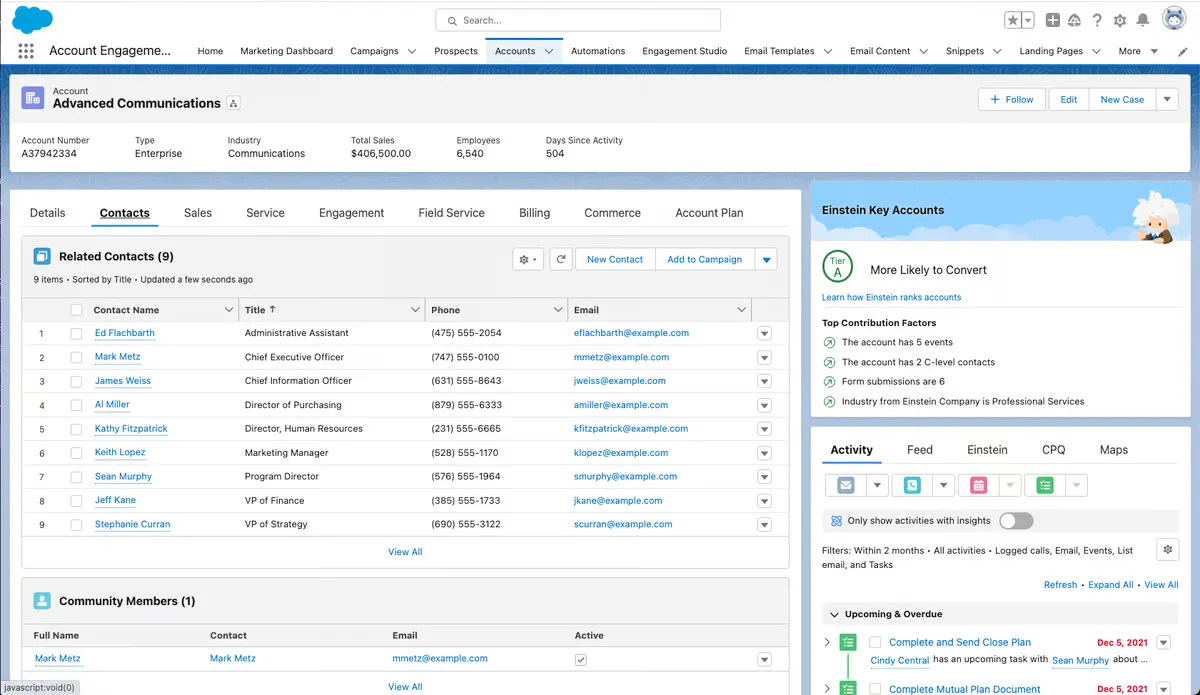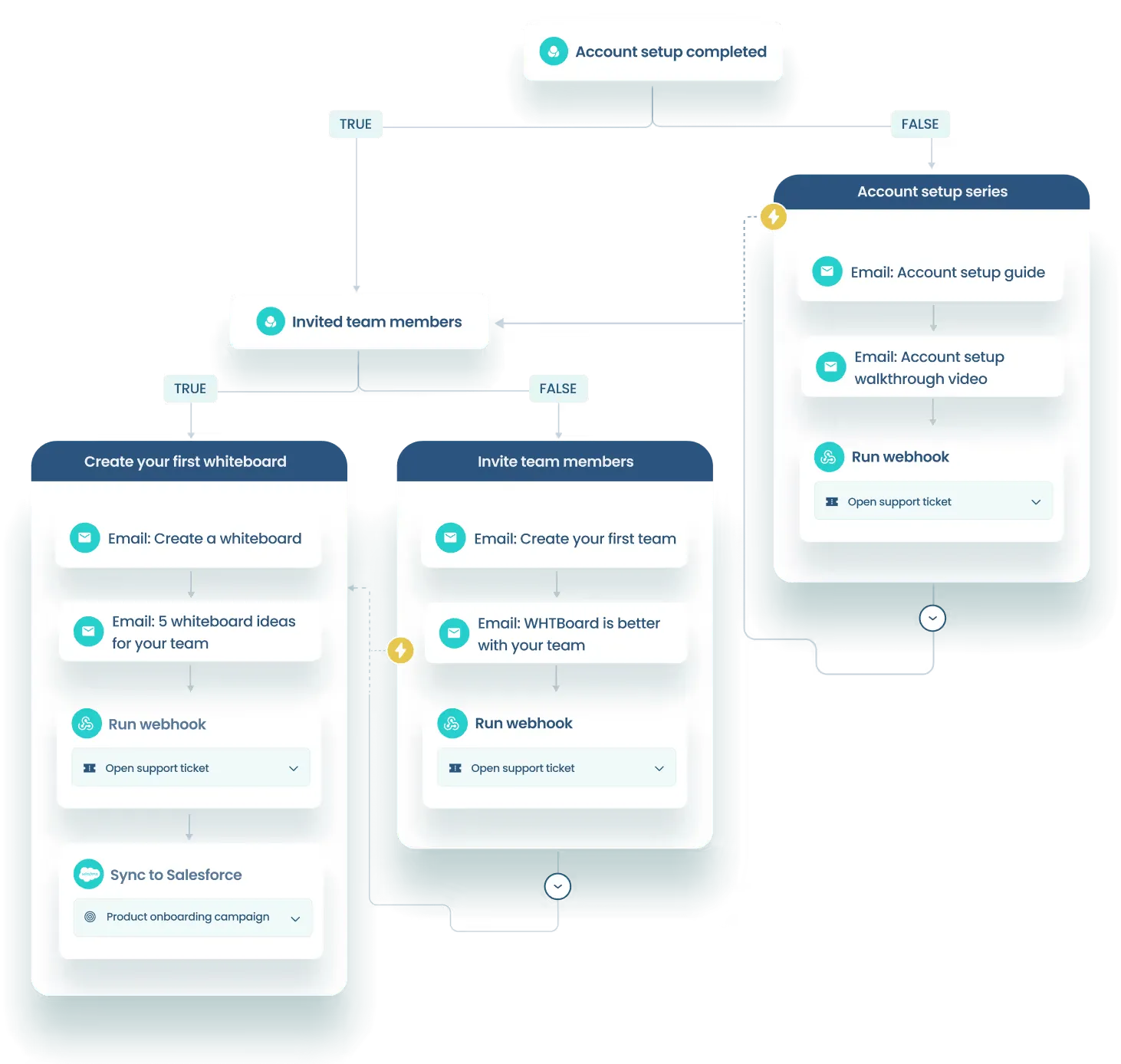3 Marketo Alternatives from a former Marketo employee (2025 edition)
Marketo has long been a staple in marketing automation for B2B SaaS companies, but it’s increasingly becoming outdated and overpriced. Many businesses are finding themselves frustrated by escalating costs and features that no longer meet their needs.

Why Are B2B SaaS Companies Looking for A Marketo Alternative?
If you’ve used Marketo, you’re probably familiar with its quirks and limitations:
- Constant cap management: Many companies find themselves having to regularly remove contacts to stay under Marketo’s limits.
- Escalating costs: Prices keep rising without meaningful improvements in features.
- Clunky UX: Marketo’s interface is difficult to use, requiring specialized training for team members.
- No Innovation: Marketo prioritizes profits over product innovation. That means customers are left to work with outdated features and minimal improvements to the platform. Many users feel the platform isn’t evolving to keep pace with modern marketing needs.
- No Product Data Integration: Marketo users cannot integrate with data warehouses and Customer Data Platforms (CDPs). Their customers can’t leverage product data for targeted, personalized marketing campaigns. So, Marketo users cannot create holistic customer views.
What Are Marketo Alternative Options?
Some popular Marketo alternatives for B2B SaaS companies available are:
1. HubSpot

HubSpot has become one of the most popular alternatives to Marketo for good reason. While it initially started as a CRM and inbound marketing platform, HubSpot has evolved into a full-fledged marketing automation powerhouse that serves B2B SaaS companies across the globe.
Why HubSpot?
- Ease of use: Unlike Marketo, HubSpot’s interface is clean, intuitive, and user-friendly. You can easily onboard new team members without the need for lengthy training sessions.
- All-in-one solution: HubSpot offers more than just marketing automation. It integrates CRM, sales, and customer service tools into one platform, making it an attractive option for companies looking to consolidate their tech stack.
- Great for small companies: Hubspot is a popular choice for smaller companies that have less than 100 employees. Their scalable pricing and free tier make it accessible for growing businesses that need a cost-effective solution.
One of the key differentiators for HubSpot is its focus on inbound marketing, which works especially well for companies looking to generate leads through content marketing and SEO.

However, the all-in-one nature of HubSpot can sometimes be overkill for companies that need deeper customization and more advanced features in areas like email automation or lead nurturing. Hubspot users can’t activate data from their data warehouses and CDPs to trigger their marketing automation flows.
2. Pardot (Salesforce)

Pardot, now branded under Salesforce Marketing Cloud Account Engagement, provides powerful marketing automation tools for B2B companies and integrates natively with Salesforce’s CRM, offering real-time data synchronization between your marketing and sales teams.
Why Pardot?
- Simple, limited features: Pardot’s basic feature set makes it easy to use, especially for teams seeking straightforward marketing automation without the complexity of advanced tools like Marketo.
- Simplified contracts: As a subsidiary of Salesforce, Pardot benefits from streamlined contracts and pricing for businesses already using Salesforce, reducing administrative burdens.

However, Pardot has its downsides. It doesn’t integrate with data warehouses or CDPs, limiting targeting capabilities and personalization using product activity. There are also concerns about Salesforce’s long-term plans for Pardot, as the platform is rumored to be on a multi-year phase-out journey. Salesforce shutting down Pardot will not significantly impact their operations given that Pardot is a smaller part of their overall business. This uncertainty, coupled with minimal product innovation, makes Pardot a risky choice for companies looking for future-proof solutions.
3. Inflection

Enter Inflection—a modern B2B marketing automation platform built by ex-Marketo executives to address these limitations. Inflection offers never seen before functionality with product activity triggered marketing flows, flexible pricing, and a seamless user experience, making it the ideal alternative for companies looking to streamline both prospect and customer communications.
Why Is Inflection The Better Marketo Alternative?

Product activity-driven marketing: Inflection allows marketers to harness real-time product activity data to drive campaigns. You can create personalized messages triggered by specific user actions—like feature usage or milestones—ensuring that your outreach is timely and relevant, far beyond Marketo’s capabilities.
- Built for growth: Inflection’s architecture is designed to scale with your business, whether you’re handling thousands or millions of contacts. This eliminates the need for constant cap management or costly upgrades as your customer base expands.
- User-first interface: Unlike Marketo’s clunky UX or Pardot’s complexity, Inflection’s intuitive design is built for marketing teams of all technical backgrounds. Your team can get up and running faster without relying on specialized training or support.
- Pricing flexibility: Inflection offers a unique marketing automation pricing model that grows with you, ensuring you only pay for what you need, unlike the steep and often inflexible pricing structures of Marketo or Pardot. To simplify, you pay for the contacts you are marketing to and not for the size of your database.
- Deep customization: Inflection allows for deep customization across campaigns, workflows, and integrations, giving you full control over how your marketing efforts align with your business goals.
Inflection’s unique ability to activate your product data and data warehouse to drive more pipeline, product adoption, and revenue expansion makes it a better option for companies looking for a scalable marketing automation solution without sacrificing power or user experience. With advanced automation capabilities, smart segmentation, and seamless integrations with the tools you’re already using, Inflection is a future-proof platform that helps marketers do more with less.
Why Inflection is the Ideal Marketo Alternative for B2B SaaS Marketing in 2025?
Choosing the right alternative to Marketo depends on your company’s specific needs, budget, and long-term goals. As a team of former Marketo executives, we understand the frustrations that marketers face. If you’re a Marketo user trying to find a better marketing automation solution that can bring in CRM and product data to drive revenue, handle both prospect and customer communications, and also scale with your business, Inflection is your answer.

Whether you’re considering a full transition away from Marketo or want to test the waters by handling customer communications through Inflection, you’ll find that the platform’s superior functionality and straightforward pricing make it the best choice for the future of marketing automation.
Ready to make the switch? Request a marketing automation demo today.

%201.webp)





